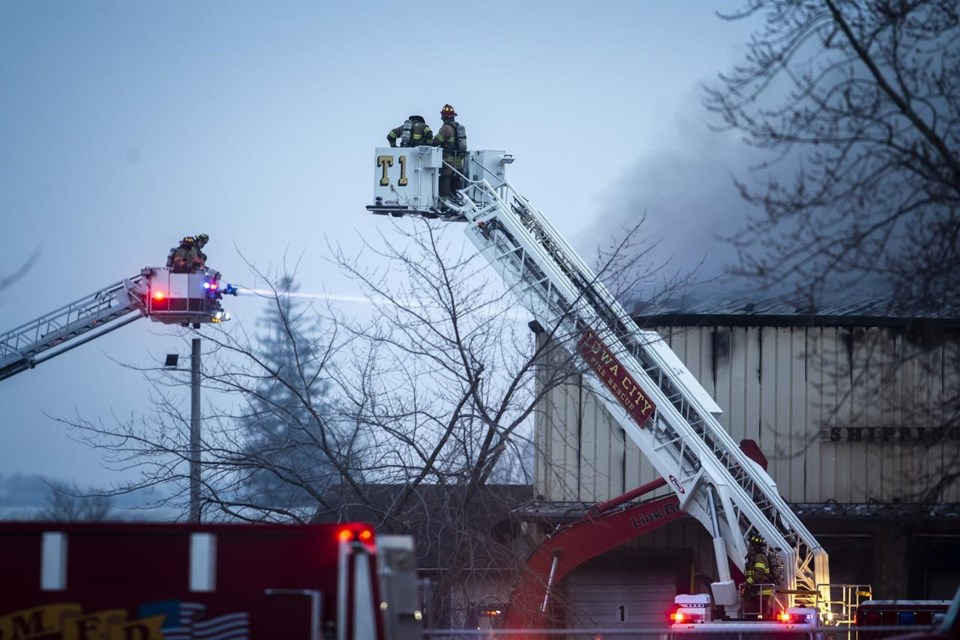Iowa officials have ordered an asphalt shingle recycling company shut down and its Marengo plant cleaned up and stabilized after an explosion last week injured about half its workers and forced nearby evacuations.
The Iowa Department of Natural Resources issued the emergency order Friday to C6-Zero, requiring it to immediately stabilize hazardous conditions at the plant, to remove all solid waste on-site and to clean up contaminated soil and water. The order also warns the state could seek tens of thousands of dollars in fines a day until the cleanup is done.
The explosion and fire on Dec. 8 sent more than a dozen people to hospitals for injuries. Two workers injured in the blast remained hospitalized Friday in a burn unit.
The order details the department's 19-month unsuccessful effort before the explosion to get information from C6-Zero and its owner, Howard Brand, regarding the plant's operation of recycling used asphalt shingles into biofuel. The DNR said it that was unable to get a list of what chemicals were being used in the process and the plant and its operators repeatedly refused to allow state officials to fully inspect the plant.
The plant's operators also repeatedly asserted to state officials that it was not a recycling plant but a “re-manufacturer,” and therefore exempt from Iowa's solid waste, recycling or air quality permitting regulations.
“Despite repeated information requests from the DNR and meetings in which compliance matters were discussed, C6-Zero and Mr. Howard Brand have failed to comply with Iowa’s air quality, hazardous condition, solid waste and legitimate recycling laws,” the order reads. “The facility is not legitimately recycling materials and must cease operations.”
Neither the company nor Brand immediately answered emailed questions Friday about the department's assertions that C6-Zero had not cooperated with the state's attempts to get the company to comply with demands for information.
In the aftermath of the explosion, according to the order, inspectors found large areas of contaminated soil that threaten Iowa’s groundwater and large run-off pools of contaminated water flowing into or toward the Iowa River.
“The facility’s current condition is a clear threat to public health and the environment," the order summarized. “Another catastrophic event is possible due to the presence of unknown flammable chemicals and gases remaining inside a damaged building, exposed to the elements.”
Margery A. Beck, The Associated Press



